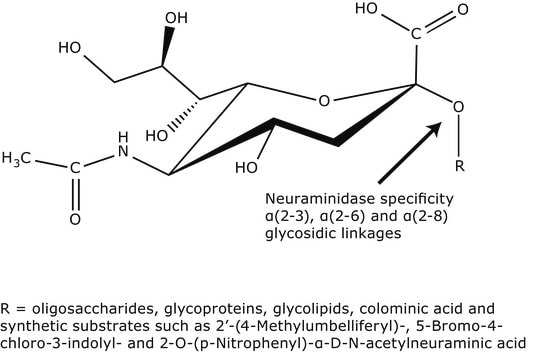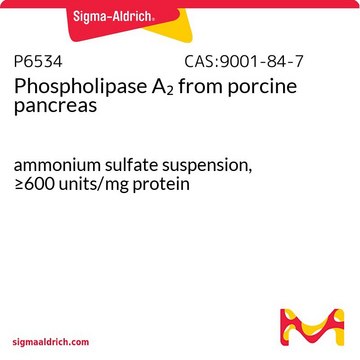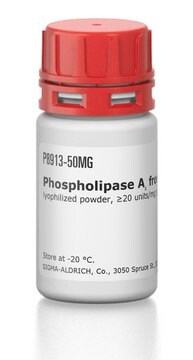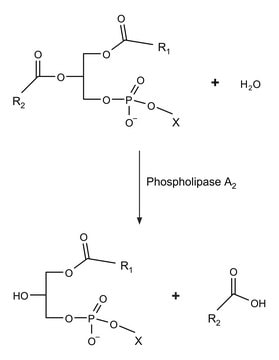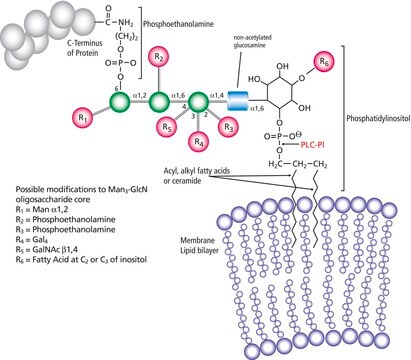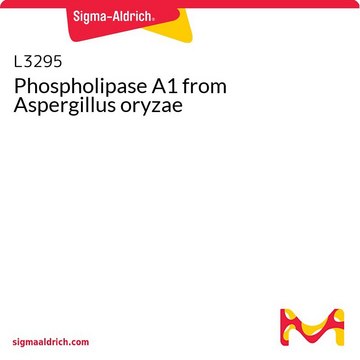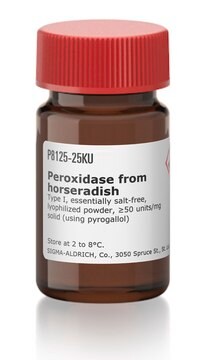P0515
Phospholipase D from Arachis hypogaea (peanut)
Type II, lyophilized powder, ≥60 units/mg protein
Sinónimos:
Lecithinase D, Phosphatidylcholine phosphatidohydrolase
About This Item
Productos recomendados
biological source
Arachis hypogaea
Quality Level
type
Type II
form
lyophilized powder
specific activity
≥60 units/mg protein
composition
Protein, ~30%
storage temp.
−20°C
¿Está buscando productos similares? Visita Guía de comparación de productos
General description
Application
Biochem/physiol Actions
Unit Definition
Physical form
Analysis Note
signalword
Danger
hcodes
pcodes
Hazard Classifications
Resp. Sens. 1
Storage Class
11 - Combustible Solids
wgk_germany
WGK 3
ppe
Eyeshields, Gloves, type N95 (US)
Certificados de análisis (COA)
Busque Certificados de análisis (COA) introduciendo el número de lote del producto. Los números de lote se encuentran en la etiqueta del producto después de las palabras «Lot» o «Batch»
¿Ya tiene este producto?
Encuentre la documentación para los productos que ha comprado recientemente en la Biblioteca de documentos.
Los clientes también vieron
Nuestro equipo de científicos tiene experiencia en todas las áreas de investigación: Ciencias de la vida, Ciencia de los materiales, Síntesis química, Cromatografía, Analítica y muchas otras.
Póngase en contacto con el Servicio técnico
